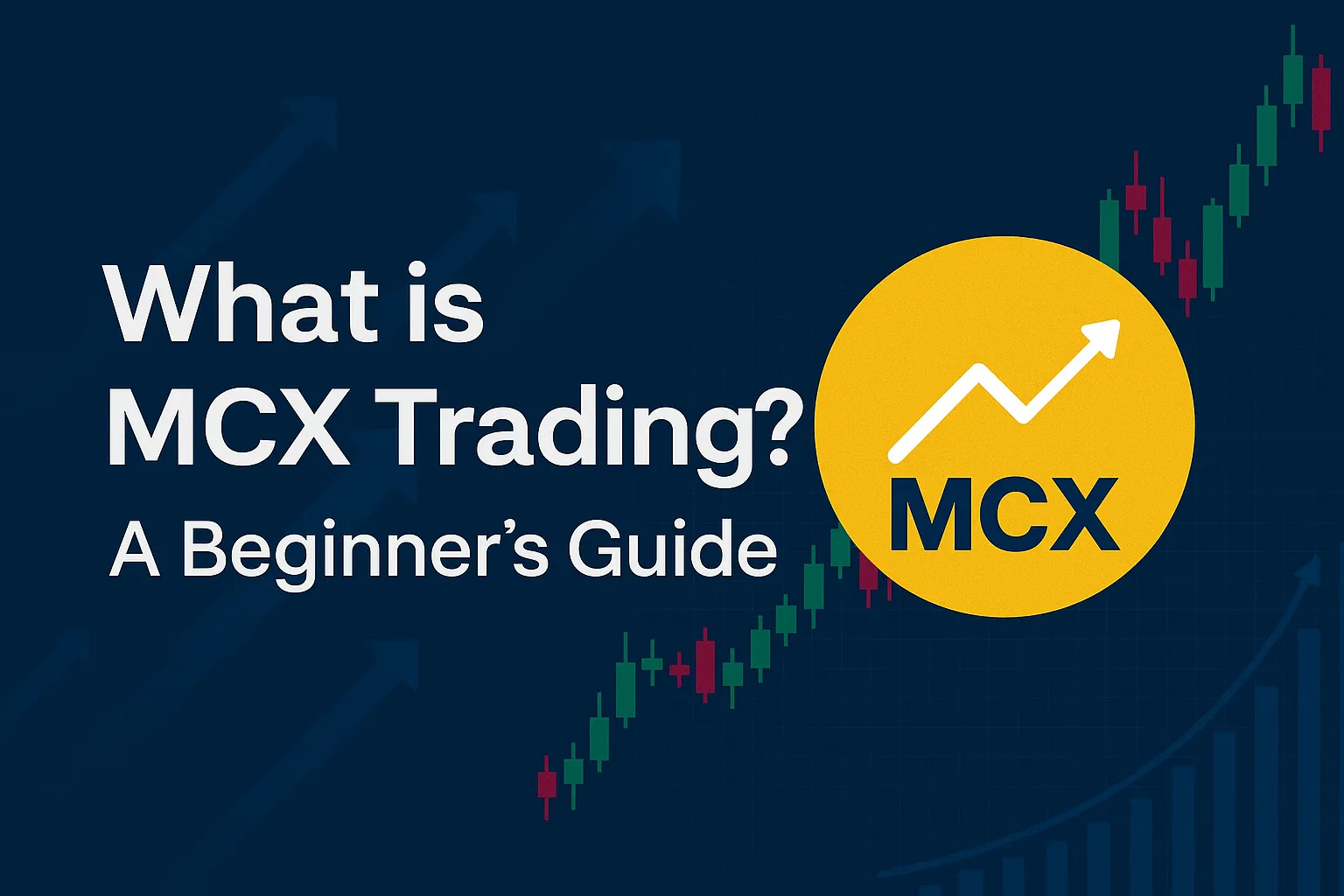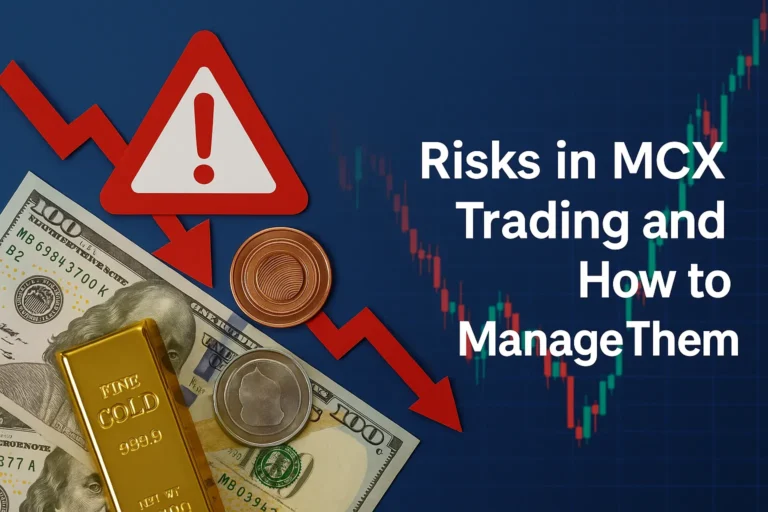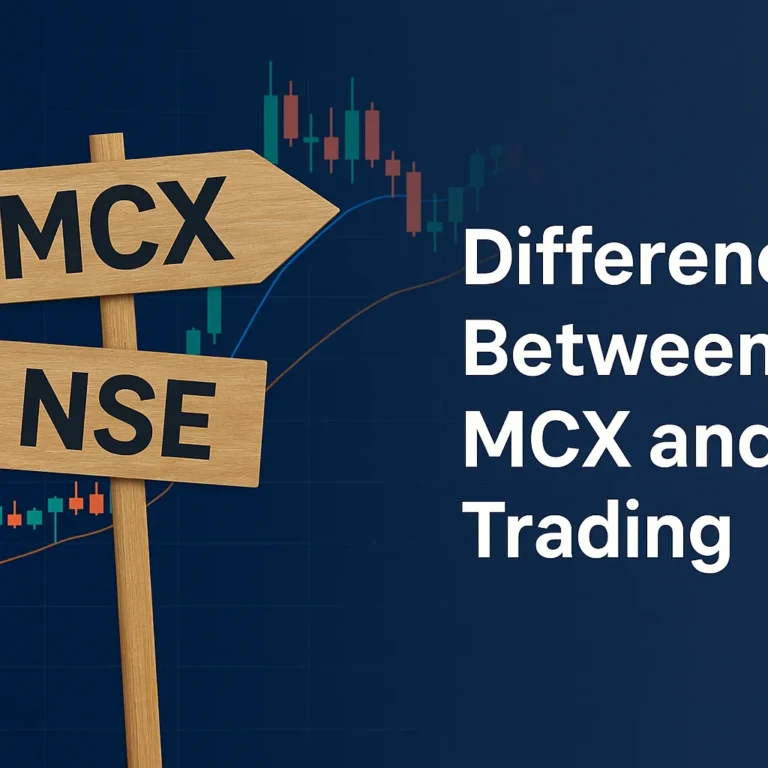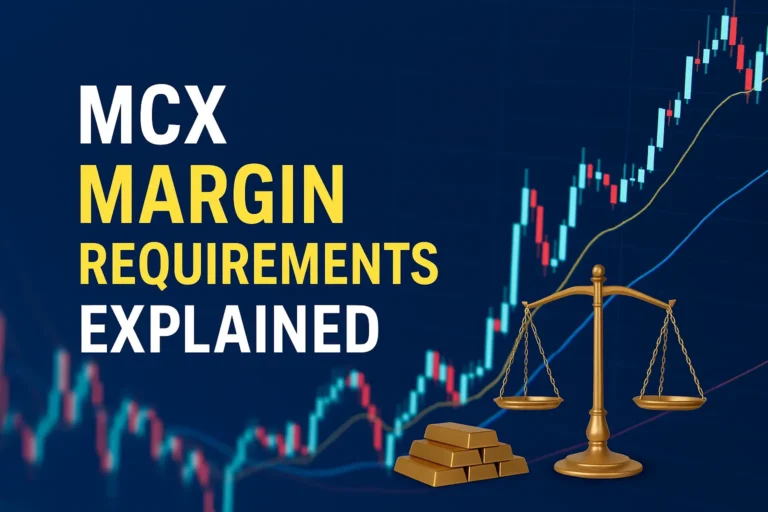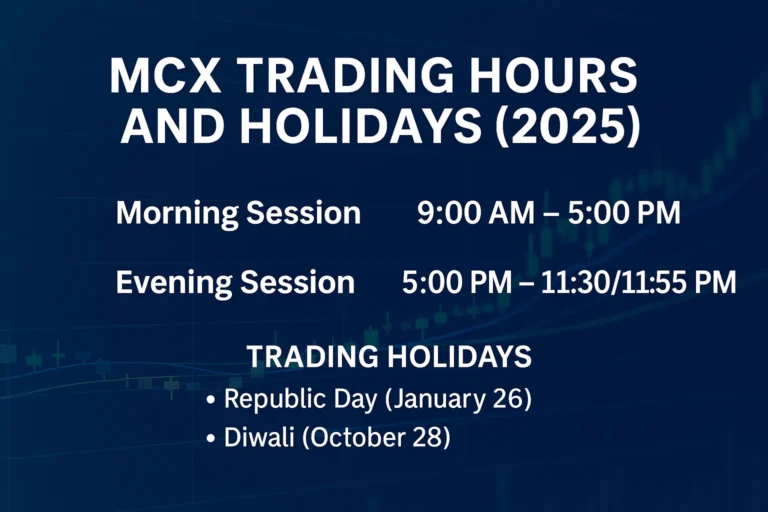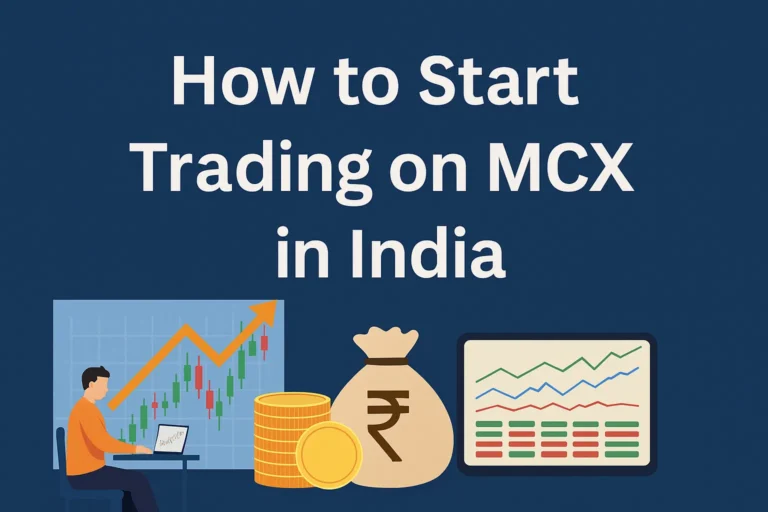What is MCX Trading? A Beginner’s Guide
The world of trading isn’t limited to stocks and mutual funds. Many Indian traders are now exploring opportunities in commodities like gold, silver, crude oil, and agricultural products. One of the key platforms for this is MCX – the Multi Commodity Exchange of India.
If you’re wondering what MCX trading is and how to get started, this beginner’s guide explains everything in simple terms.
What is MCX?
MCX (Multi Commodity Exchange of India) is the largest commodity derivatives exchange in India. It allows traders and investors to buy and sell futures contracts based on the price movements of physical commodities.
MCX is regulated by the Securities and Exchange Board of India (SEBI) and operates under the Ministry of Finance.
Which Commodities Can You Trade on MCX?
You can trade a wide range of commodities on MCX, including:
- Bullion: Gold, Silver
- Energy: Crude Oil, Natural Gas
- Base Metals: Copper, Zinc, Lead, Nickel, Aluminium
- Agri-Commodities: Cotton, Mentha Oil, Cardamom, etc.
Each commodity is traded in specific lot sizes, with daily price movements influenced by global and domestic market factors.
How Does MCX Trading Work?
MCX trading is primarily based on futures contracts, which are agreements to buy/sell a commodity at a predetermined price on a future date. These contracts are settled either in cash or through delivery (though most are cash-settled).
Key elements:
- Lot size: Minimum quantity you can trade (e.g., 1 kg of Gold Mini)
- Margin: Only a percentage of the contract value is required to place a trade
- Leverage: You can take large positions with smaller capital
- Expiry: Each contract has a monthly expiry date
Benefits of Trading on MCX
- Diversification: Commodities offer diversification from stocks and bonds
- Hedging: Businesses use it to hedge against price fluctuations
- Leverage: Small capital can control large contracts
- Liquidity: High volume in major commodities ensures ease of trading
- Speculative Opportunities: Traders can profit from price movements even without owning physical commodities
MCX vs Stock Market Trading
| Aspect | MCX Trading | Stock Market Trading |
|---|---|---|
| Instruments | Commodities (futures) | Shares, ETFs, Derivatives |
| Regulation | SEBI | SEBI |
| Trading Hours | Up to 11:55 PM | Typically until 3:30 PM |
| Volatility | High (due to global news/events) | Moderate |
| Leverage | Higher in MCX | Limited |
Who Should Trade on MCX?
- Retail traders looking for short-term gains
- Investors seeking portfolio diversification
- Businesses involved in commodity supply chains
- Technical traders who rely on chart patterns and indicators
Risks in MCX Trading
- High leverage = higher risk
- Price influenced by global events
- Low liquidity in lesser-known commodities
- Requires proper risk management and stop-loss discipline
FAQs
Is MCX trading legal in India?
Yes, MCX is a government-recognized exchange regulated by SEBI.
Can beginners start MCX trading?
Yes, with proper education and risk management, beginners can start trading in popular commodities like Gold Mini or Crude Oil.
Do I need a separate account for MCX trading?
Yes, you need a commodity trading account with an MCX-registered broker.
Can I trade in MCX from my mobile?
Yes, most brokers offer mobile apps with full MCX trading access.
Are there demo accounts for MCX?
Some brokers offer demo or paper trading for commodity futures to help beginners practice.

